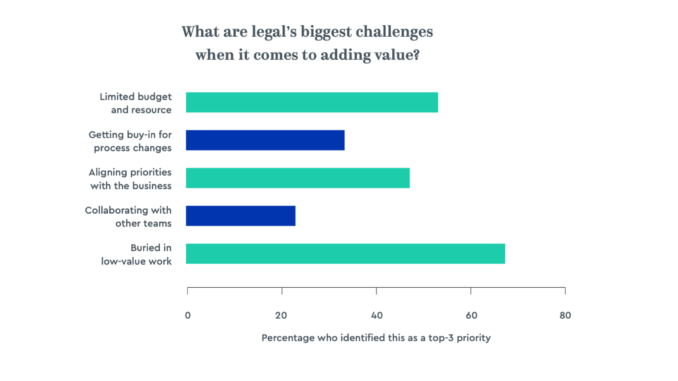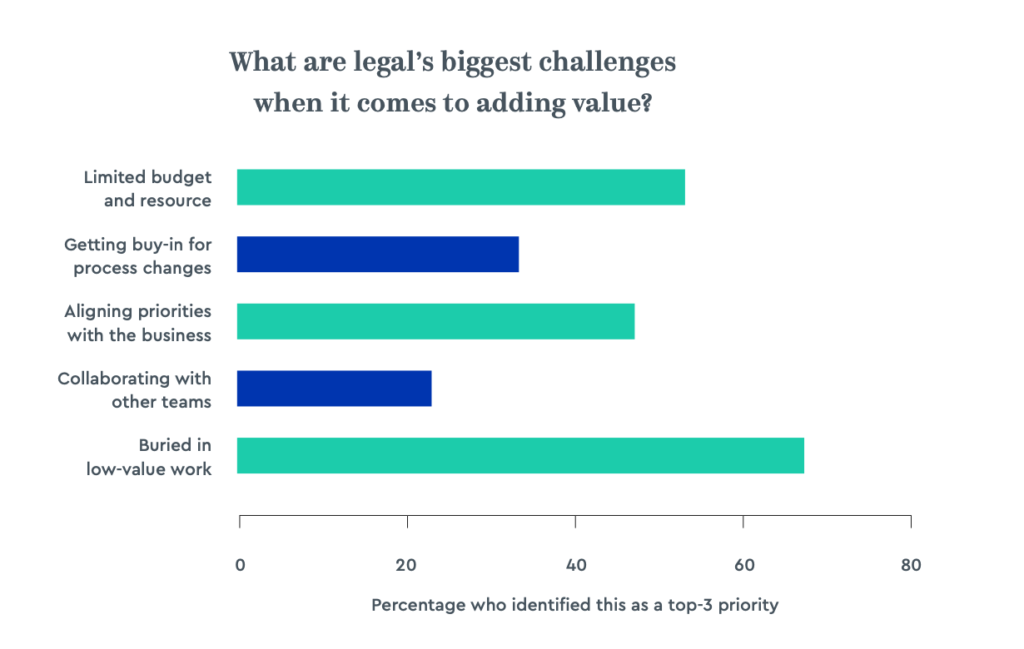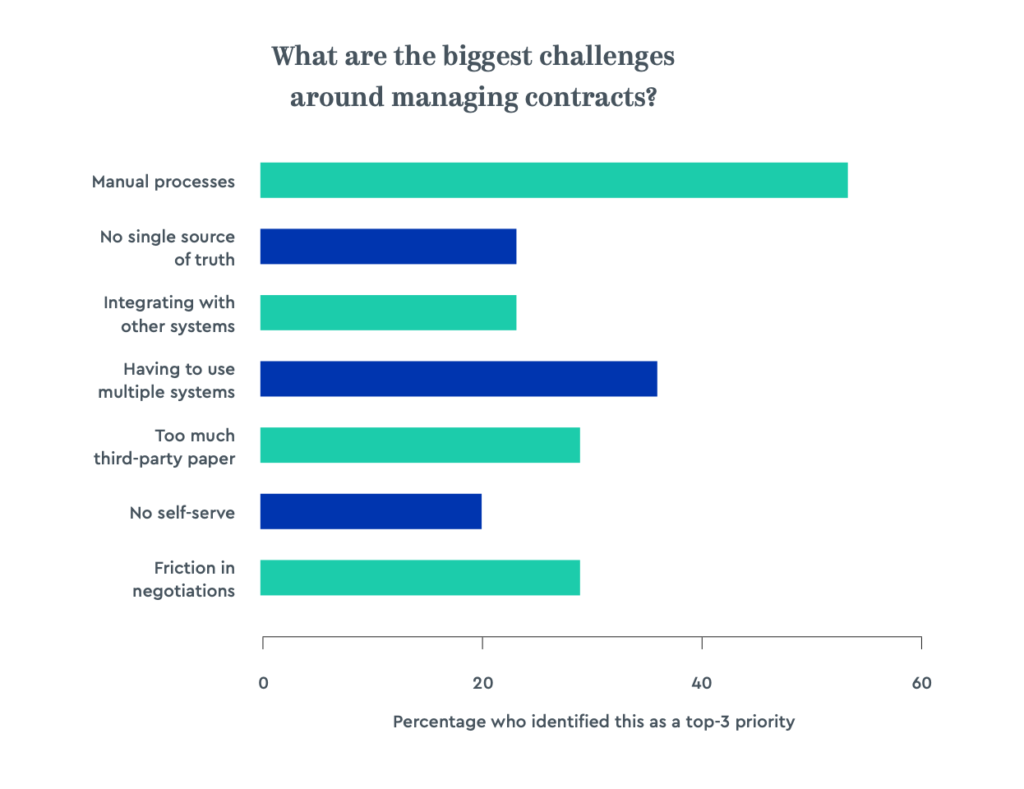
A survey by Juro and Wilson Sonsini found that 67% of inhouse lawyers at fast-growth companies felt buried in low-value work.
As the report that went with the survey said: ‘Whether it’s digging out templates in Word or answering basic queries, this kind of reactive work is what tends to block tech GCs from adding value.
‘This is, of course, a huge problem – lawyers are relatively expensive hires, not always easy to find, and with great strategic insight to offer across the business.
‘It also seems to be an avoidable problem – the majority of respondents did not say that they don’t have the resources they need. This suggests that the headcount is there – at least, to an extent – but it’s being deployed to the wrong kind of work for too much of the time.’
And that’s a great summary of a problem that is seen across all parts of the legal market, not just fast-growth inhouse legal teams. Lawyers are smart, work hard and can add a lot of benefits to a business – but they so often end up as inefficient process wranglers.

The report, which given that it’s by Juro, a contract management platform, understandably targets the usual contracting process as a fundamental cause of inefficiency (see table below).

As seen in the table, there are a range of reasons why contracts suck so much time and energy, with the top cause being the old-fashioned artisanal and manual traditions of the profession – which even now are still so hard to shake off.
The second-most important cause is ‘having to use multiple systems’ – and that is a reality often not made easier with the surge of new tech products on the market.
More broadly the survey also found that when it comes to legal tech, what GCs want is:
- Easy adoption – 80%
- Integrations – 57%
- Data – 43%
I.e. like most people, they just want stuff to work, and work easily with what they have already.
Meanwhile a significant minority wanted to get their hands on data to find insights, for example into their contracting processes. In short, most GCs just want to focus on being lawyers, but a notable group also want to leverage the tech to get an additional understanding of what they are doing – and that’s good to see.
And, we can’t forget about our constant partner in all of this….COVID-19. The survey found that 67% of inhouse lawyers felt they were well set up for working remotely – which is good to see, but it also means that 33%, i.e. one third, did not feel that way – and that’s a worry when you consider they are running some very significant companies’ legal teams.
Any road, there is more info and commentary in the report. Here’s a couple of additional points from one of the report authors, Richard Mabey, Juro’s CEO and co-founder.
‘Under the looming shadow of COVID, tech GCs’ priorities, challenges and frustrations have perhaps become even clearer this year than last – they want to add value to the business, they want to bring their skills to bear on commercial strategy, they want to escape the deluge of low-value work, and they want to end manual processes,’ he concluded.
—
Survey Data:
Over three weeks in June 2020, the survey team interviewed legal leaders at 30 different high-growth technology companies, with the following job titles:
- Chief Legal Officer
- General Counsel
- Head of Legal
- VPLegal
- Senior counsel
- Legal operations & innovation manager
- Legal counsel
AL Note: The statistics are therefore indicative, rather than comprehensive, but given the sample group are likely to be a reliable reflection of trends in the market.
1 Trackback / Pingback
Comments are closed.